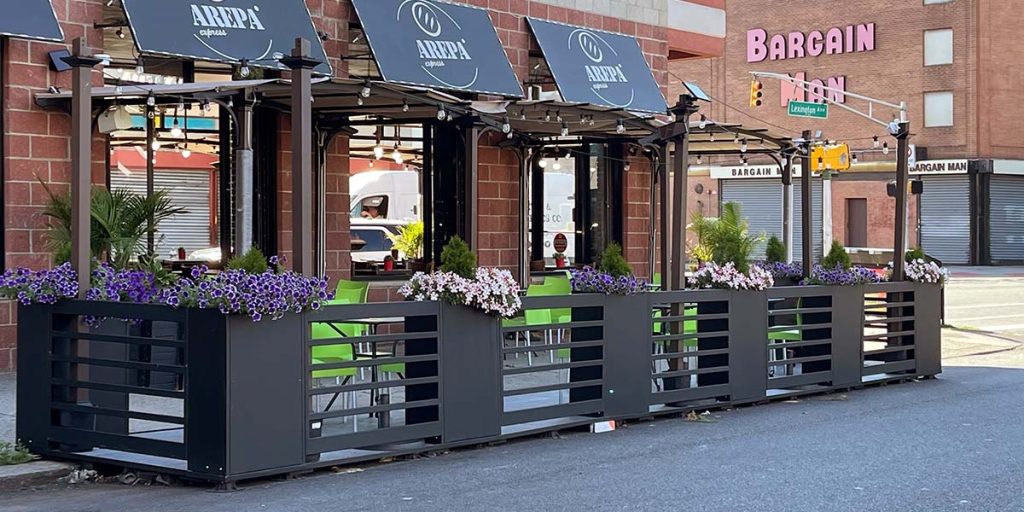In recent years, many cities have been encouraging a more lively and active downtown by welcoming community involvement in the creation of small self-contained seating areas which take the place of one or more parking places along streets that have a good mix of commercial establishments and a traffic speed limit of no more than 25mph. These community spaces, generally known by the term first used in San Francisco as Parklets, but also known by other terms such as Street Seats or People Spots are designed to provide pleasant and relaxing places to read a magazine or newspaper, meet some friends, enjoy a snack or drink purchased from nearby establishments or simply hang out and watch the world go by.
Since they are almost always community-initiated, but subject to strict planning and maintenance requirements by local authorities, the initial Parklet cost is generally the biggest challenge to establishing a Parklet in most regions. For a custom-designed and built Parklet, this cost can often run to more than $20,000 including architects’ fees, materials and building costs and just some modest furniture.
With Archatrak’s expertise in supplying pedestal-supported porcelain paving, we decided there must be a way of creating a completely self-contained modular parklet deck. It would have to easily cope with variable heights across and along a road surface and meet regulations in terms of barrier height and sideways force. It would also need to be easily brought on-site in a single package and be easily constructed without requiring hours of architectural design or ongoing costly maintenance. In addition, the modular parklet would need to allow for customization to maintain individuality and, most importantly, the parklet cost would need to remain a lot less than $20,000.

We have over 80 stocked colors of porcelain pavers that can be used on the deck surface including styles that closely resemble wood, natural stone, or even concrete, the planters can be customer painted or supplied with custom laser cut design, railings can be steel, aluminum or stainless steel cable and in fact, any 3rd party planters or railing could be used on the deck surface, provided they can be secured strongly and safely to the mounting brackets to meet all required regulations.
Generally speaking, a StreetDeck Parklet will not require hours of an architect’s time other than maybe the council requiring a detailed plan of the site and all components. It will not require purchasing components from many different suppliers with the headache then of coordinating delivery on site. It will not require cutting or fabrication of components on-site since all components are modular and simply bolt together. It will not require specialized tradespersons to install – just a bit of basic do-it-yourself knowledge. And if you are in an area where the structure must be disassembled in Winter for snow clearing, that’s no problem. Simply lift up the pavers, unbolt the structure and pack the components away for the Winter.
And maintenance? Porcelain pavers are essentially maintenance-free since they are non-porous. So no grease or oil staining. Just a quick wash with water is all that’s needed to keep them looking great. So if you or a community organization is planning a Parklet in the future, make sure to give us a call to see if we can help you visualize your dream.

